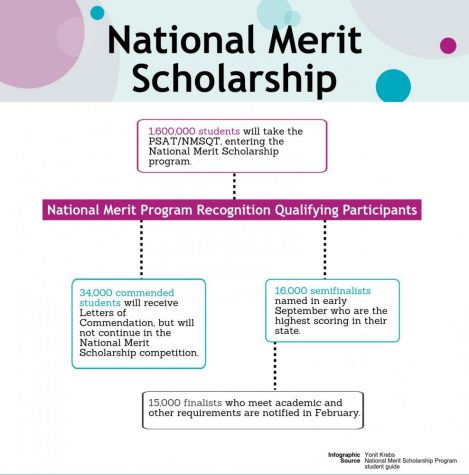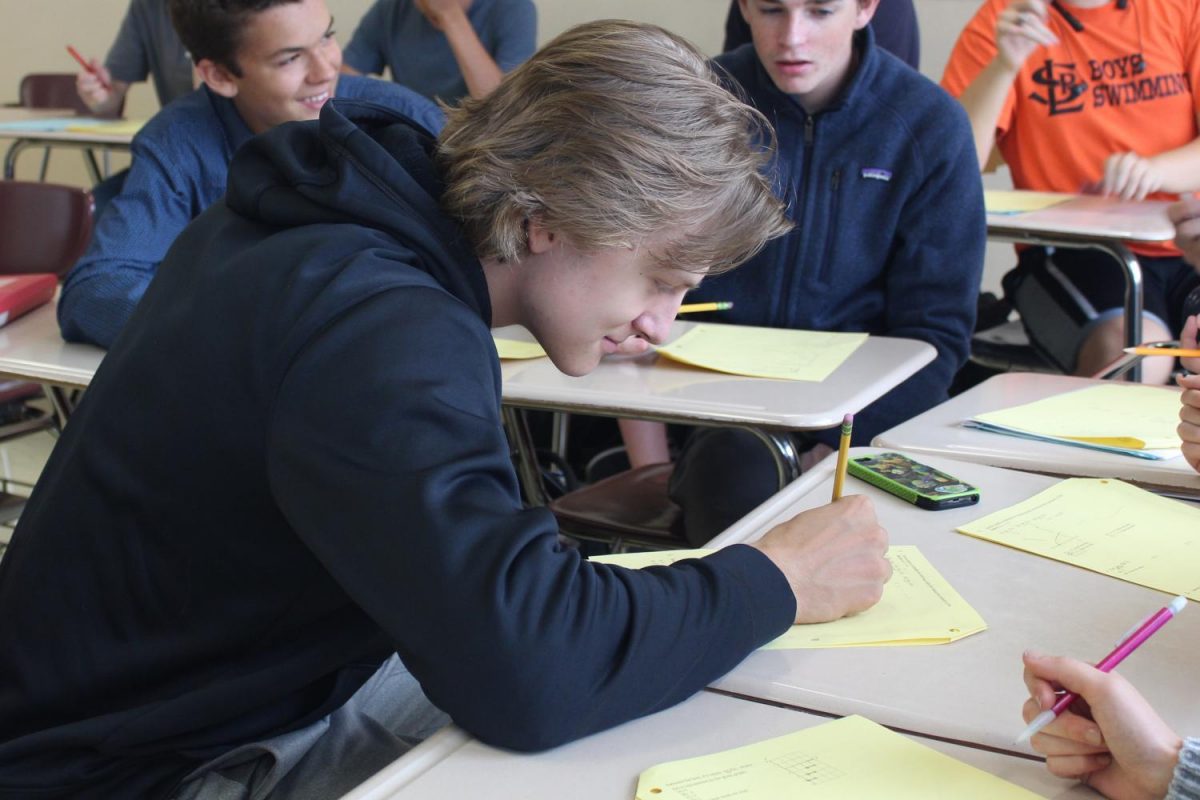Park lacks National Merit Scholars
No seniors named semifinalists
Senior Ian Sandbo takes test in math class on Sep. 23. No students qualified for the National Merit Award this year.
October 13, 2017
 After discovering his grade is the first in several years to not have any National Merit Scholars named, senior David Salamzadeh said he thinks the lack of National Merit Scholars does not accurately represent his grade’s academic abilities.
After discovering his grade is the first in several years to not have any National Merit Scholars named, senior David Salamzadeh said he thinks the lack of National Merit Scholars does not accurately represent his grade’s academic abilities.
“I think standardized tests are an interesting way of viewing a grade as a whole,” Salamzadeh said. “I think (the PSAT is) probably not an accurate reflection of our grade being less smart than other grades.”
Student advocate Jami Lapray said for those who perform exceptionally on the PSAT test in their junior year, there is an award called the National Merit Scholarship Program. According to the National Merit Scholarship Program student guide, only 3% of the 1.6 million (50,000 students) who take the PSAT will qualify for program recognition.
“It’s an opportunity for students to show potential colleges that they would be a good fit for their college and it could mean scholarship money,” Lapray said.
Salamzadeh said he doesn’t think tests like the PSAT prove students’ knowledge effectively.
“My personal view is that the PSAT is not a measure of academic capability because people can be very smart but very bad at standardized tests and that is not reflected well on many of those types of tests,” Salamzadeh said.
Lapray said she suspects the date of last year’s PSAT might have affected the students taking it, resulting in no National Merit Scholars, unlike the three or four Park normally has.
“Last year the test was on the day before MEA break and there was a lot of excitement in the air and everyone was ready to head home, so I think, if anything, that could have been a reason (there were no National Merit Scholars),” Lapray said.
Junior Angelica Lopez already feels the importance of big college entrance exams such as the ACT or SAT and says taking another major test, such as the PSAT, will just add to the mounting pressure.
“Last year, (I didn’t take the PSAT) because I had a test that day, and I didn’t want to skip that,” Lopez said. “This year I might not (take the PSAT) because I’m studying for the ACT, and I probably don’t want to worry about other tests before I take that.”
However, according to student advocate Jami Lapray, students should take the PSAT as practice for the SAT or ACT because it provides a similar test environment.
“The PSAT is a preliminary scholar aptitude test and it’s very similar in format to the SAT and ACT. It gives students an opportunity to see what a standardized test is, how it works (and) how well they perform with the stress of time limits and in a big group,” Lapray said. “It’s a relatively inexpensive way to get some practice and to find out how well you will do in the future.”
According to Lapray, Park will administer the PSAT on Oct. 11. Registration costs $30, although the fee is waived for students on free or reduced lunch, and the registration deadline is Oct. 6.




